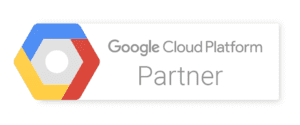/cdn.vox-cdn.com/uploads/chorus_image/image/58526977/162794739.jpg.0.jpg)
One of the tech industry’s most storied partnerships is coming to an end.
EBay announced today that it will stop working with PayPal as its back-end payments service in 2020 and will start to move a small percentage of its payments volume to a new partner later this year.
In PayPal’s place, eBay has signed a long-term deal with Adyen, an Amsterdam-based payments company that was founded in 2006 and has counted global companies like Uber, Netflix and Spotify among its customer base.
Adyen’s business is solely focused on providing back-end payments services, like credit card processing, to businesses, so you won’t see any Adyen payment buttons pop up on eBay. But Adyen will become the primary payments processor for eBay sites across the world.
After the existing eBay-PayPal agreement ends in 2020, PayPal will remain a payment option for shoppers on eBay, but it won’t be prominently featured ahead of debit and credit card options as it is today. PayPal will cease to process card payments for eBay at that time.
PayPal’s stock dropped as much as 12 percent on the news in after-market trading.
At eBay, the move is being billed as a way to take more control over the critical checkout experience as other giant online shopping destinations like Amazon and Alibaba have, while giving more payment options to eBay shoppers. Adyen supports more than 200 payment methods across the world, eBay said in a blog post announcing the news.
The move is also expected to eventually add $2 billion of revenue to the eBay business, because the company will start to charge eBay sellers for the payments service; today, PayPal does.
That said, “most sellers can expect their costs of payments processing to be reduced after they transition to eBay’s intermediated payments model,” eBay said in its announcement.
For Adyen, the eBay deal is a huge win for a company of its size; Adyen registered net revenue of $178 million in 2016 compared to nearly $11 billion — yes, with a B — for PayPal.
One would assume, then, that there’s a good chance that eBay is taking an equity stake in Adyen alongside the commercial agreement so it can benefit from the upside this will create. For now, the company isn’t saying if that’s the case. It’s fair to wonder if Adyen had to make any financial concessions to win the business of a platform of eBay’s size.
Adyen is expected to file for an IPO as early as this year.
PayPal became eBay’s main payments provider in 2003, a few months after eBay had acquired the company in a deal valued at $1.5 billion. The two companies split into separate public companies in July of 2015 and signed a five-year operating agreement to maintain a close relationship through mid-2020.
Around the time the companies announced plans for the split in 2014, eBay accounted for more than 30 percent of PayPal’s revenue and more than 50 percent of its profits, the combined company said at the time.
PayPal has sought to diversify its business since the companies went their separate ways, but it does not disclose how much business comes from eBay. Today, PayPal is worth $102 billion; eBay is valued at $42 billion.



